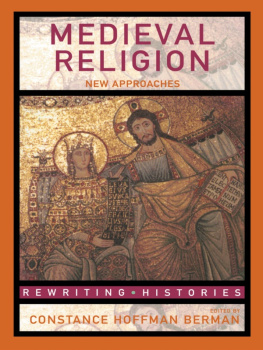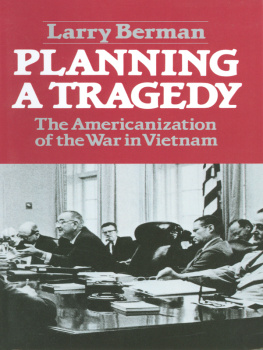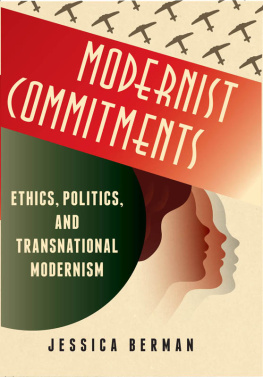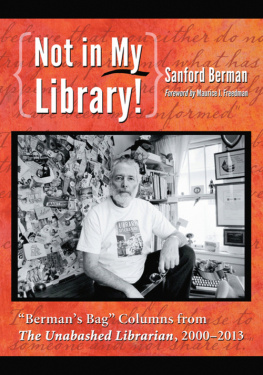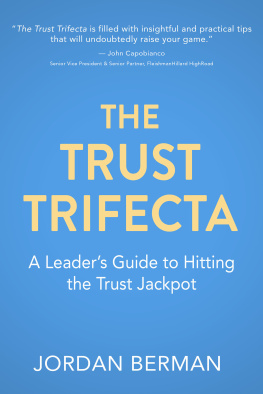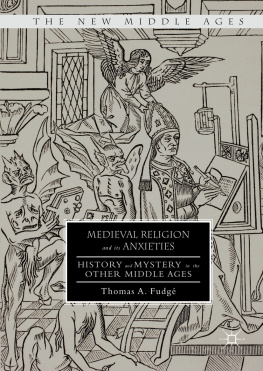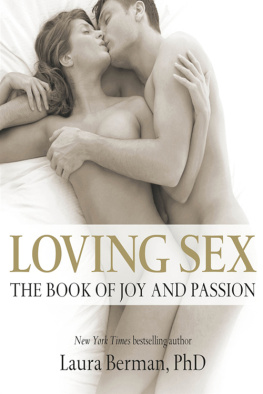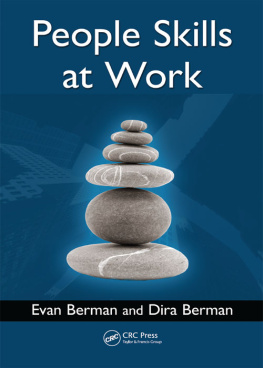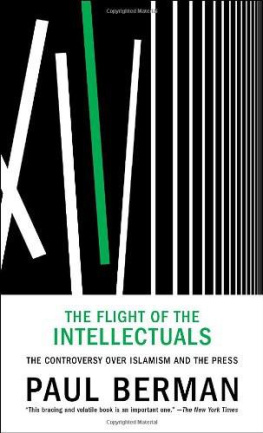Berman - Medieval Religion
Here you can read online Berman - Medieval Religion full text of the book (entire story) in english for free. Download pdf and epub, get meaning, cover and reviews about this ebook. year: 2011, publisher: Taylor & Francis (CAM), genre: Religion. Description of the work, (preface) as well as reviews are available. Best literature library LitArk.com created for fans of good reading and offers a wide selection of genres:
Romance novel
Science fiction
Adventure
Detective
Science
History
Home and family
Prose
Art
Politics
Computer
Non-fiction
Religion
Business
Children
Humor
Choose a favorite category and find really read worthwhile books. Enjoy immersion in the world of imagination, feel the emotions of the characters or learn something new for yourself, make an fascinating discovery.
- Book:Medieval Religion
- Author:
- Publisher:Taylor & Francis (CAM)
- Genre:
- Year:2011
- Rating:4 / 5
- Favourites:Add to favourites
- Your mark:
- 80
- 1
- 2
- 3
- 4
- 5
Medieval Religion: summary, description and annotation
We offer to read an annotation, description, summary or preface (depends on what the author of the book "Medieval Religion" wrote himself). If you haven't found the necessary information about the book — write in the comments, we will try to find it.
Medieval Religion — read online for free the complete book (whole text) full work
Below is the text of the book, divided by pages. System saving the place of the last page read, allows you to conveniently read the book "Medieval Religion" online for free, without having to search again every time where you left off. Put a bookmark, and you can go to the page where you finished reading at any time.
Font size:
Interval:
Bookmark:

First published 2005 by Routledge 270 Madison Ave, New York, NY 10016
Simultaneously published in the UK by Routledge 2 Park Square, Milton Park, Abingdon, Oxon OX14 4RN
Routledge is an imprint of the Taylor & Francis Group
This edition published in the Taylor & Francis e-Library, 2005.
To purchase your own copy of this or any of Taylor & Francis or Routledge's collection of thousands of eBooks please go to www.eBookstore.tandf.co.uk.
2005 selection and editorial matter Constance Hoffman Berman; individual chapters the original copyright holders
All rights reserved. No part of this book may be reprinted or reproduced or utilized in any form or by any electronic, mechanical, or other means, now known or hereafter invented, including photocopying and recording, or in any information storage or retrieval system, without permission in writing from the publishers.
Library of Congress Cataloging in Publication Data Berman, Constance Hoffman Medieval religion: new approaches/Constance Hoffman Berman. p. cm.(Re-writing histories) 1. Church historyMiddle Ages, 6001500. 2. ReligionHistory. I. Title. II. Series. BR270.B47 2004 270.3dc22 2004015899
British Library Cataloguing in Publication Data A catalogue record for this book is available from the British Library
ISBN 0-203-32867-1 Master e-book ISBN
ISBN 0-415-31686-3 (hbk)
ISBN 0-415-31687-1 (pbk)
Constance Hoffman Berman presents an indispensable new collection of the most influential and revisionist work to be done on religion in the Middle Ages in the last couple of decades. Bringing together an authoritative list of scholars from around the world, the book provides a valuable service to students of religious history in providing a compilation of the most important new work. The collection includes considerations of gender, otherness, the body, and diversity of beliefs between the eleventh and fifteenth centuries. Medieval Religion: New Approaches is essential reading for all those who study the Middle Ages, church history, or religion.
Constance Hoffman Berman is Professor of History at the University of Iowa where she has taught since 1988. She has published widely on medieval religious women, reform religion in the twelfth century, and the Cistercian Order. Her books include The Cistercian Evolution (2000).
REWRITING HISTORIES
Series editor: Jack R.Censer
ATLANTIC AMERICAN SOCIETIES: FROM COLUMBUS THROUGH ABOLITION
Edited by J.R.McNeill and Alan Karras
DECOLONIZATION: PERSPECTIVES FROM NOW AND THEN
Edited by Prasenjit Duara
DIVERSITY AND UNITY IN EARLY NORTH AMERICA
Edited by Philip Morgan
THE FRENCH REVOLUTION: RECENT DEBATES AND CONTROVERSIES
Edited by Gary Kates
GENDER AND AMERICAN HISTORY SINCE 1890
Edited by Barbara Melosh
GLOBAL FEMINISMS SINCE 1945
Edited by Bonnie G.Smith
THE HOLOCAUST: ORIGINS, IMPLEMENTATION, AFTERMATH
Edited by Omer Bartov
THE INDUSTRIAL REVOLUTION AND WORK IN NINETEENTH-CENTURY EUROPE
Edited by Lenard R.Berlanstein
THE ISRAEL/PALESTINE QUESTION
Edited by Ilan Pappe
MEDIEVAL RELIGION: NEW APPROACHES
Edited by Constance Hoffman Berman
NAZISM AND GERMAN SOCIETY, 19331945
Edited by David Crew
THE ORIGINS OF THE COLD WAR: AN INTERNATIONAL HISTORY
Edited by David Painter and Melvyn Leffler
PRACTICING HISTORY: NEW DIRECTIONS IN HISTORICAL WRITING
Edited by Gabrielle M.Spiegel
REFORMATION TO REVOLUTION
Edited by Margo Todd
THE RENAISSANCE: ITALY AND ABROAD
Edited by John Jeffries Martin
REVOLUTIONARY RUSSIA: NEW APPROACHES TO THE RUSSIAN REVOLUTION
Edited by Rex A.Wade
THE REVOLUTIONS OF 1989
Edited by Vladimir Tismaneanu
SEGREGATION AND APARTHEID IN TWENTIETH-CENTURY SOUTH AFRICA
Edited by William Beinart and Saul Dubow
SOCIETY AND CULTURE IN THE SLAVE SOUTH
Edited by J.William Harris
STALINISM: NEW DIRECTIONS
Edited by Sheila Fitzpatrick
TWENTIETH-CENTURY CHINA: NEW APPROACHES
Edited by Jeffrey N.Wasserstrom
FOR OUR SON BENJAMIN,
HIS GOOD HEALTH,
AND HIS GOOD HUMOR
Rewriting history, or revisionism, has always followed closely in the wake of history writing. In their efforts to re-evaluate the past, professional as well as amateur scholars have followed many approaches, most commonly as empiricists, uncovering new information to challenge earlier accounts. Historians have also revised previous versions by adopting new perspectives, usually fortified by new research, which overturn received views.
Even though rewriting is constantly taking place, historians attitudes towards using new interpretations have been anything but settled. For most, the validity of revisionism lies in providing a stronger, more convincing account that better captures the objective truth of the matter. Although such historians might agree that we never finally arrive at the truth, they believe it exists and over time may be better approximated. At the other extreme stand scholars who believe that each generation or even each cultural group or subgroup necessarily regards the past differently, each creating for itself a more usable history. Although these latter scholars do not reject the possibility of demonstrating empirically that some contentions are better than others, they focus upon generating new views based upon different life experiences. Different truths exist for different groups. Surely such an understanding, by emphasizing subjectivity, further encourages rewriting history Between these two groups are those historians who wish to borrow from both sides. This third group, while accepting that every congeries of individuals sees matters differently, still wishes somewhat contradictorily to fashion a broader history that incorporates both of these particular visions. Revisionists who stress empiricism fall into the first of the three camps, while others spread out across the board.
Today, the rewriting of history seems to have accelerated to a blinding speed as a consequence of the evolution of revisionism. A variety of approaches has emerged. A major factor in this process has been the enormous increase in the number of researchers. This explosion has reinforced and enabled the retesting of many assertions. Significant ideological shifts have also played a major part in the growth of revisionism. First, the crisis of Marxism, culminating in the events of Eastern Europe in 1989, has given rise to doubts about explicitly Marxist accounts. Such doubts have spilled over into the entire field of social history which has been a dominant subfield of the discipline for several decades. Focusing on society and its class divisions implied that these are the most important elements in historical analysis. Because Marxism was built on the same claim, the whole basis of social history has been questioned, despite the very many studies that directly had little to do with Marxism. Disillusionment with social history simultaneously opened the door to cultural and linguistic approaches largely developed in anthropology and literature. Multi-culturalism and feminism further generated revisionism. By claiming that scholars had, wittingly or not, operated from a white European/ American male point of view, newer researchers argued that other approaches had been neglected or misunderstood. Not surprisingly, these last historians are the most likely to envision each subgroup rewriting its own usable history, while other scholars incline towards revisionism as part of the search for some stable truth.
Font size:
Interval:
Bookmark:
Similar books «Medieval Religion»
Look at similar books to Medieval Religion. We have selected literature similar in name and meaning in the hope of providing readers with more options to find new, interesting, not yet read works.
Discussion, reviews of the book Medieval Religion and just readers' own opinions. Leave your comments, write what you think about the work, its meaning or the main characters. Specify what exactly you liked and what you didn't like, and why you think so.

